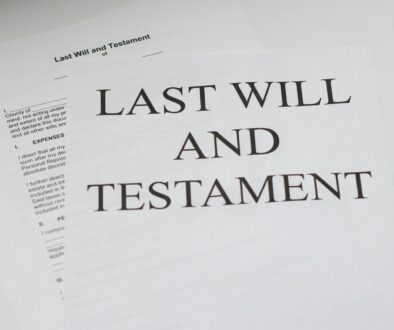Do You Understand? The Importance of Testamentary Capacity
Consider the importance of testamentary capacity in the Will making process and at a recent case which confirms the test to be applied.
“Come, come, my conservative friend, wipe the dew off your spectacles and see that the world is moving” as said by Elizabeth Cady Stanton born in 1815, 55 years before the case of Banks v Goodfellow [1870], the case which remains good law and the test to be applied when issues arise on testamentary capacity. This is despite the introduction of the test under the Mental Capacity Act 2005 and has been confirmed in the recent case of Clitheroe v Bond [2020] whereby the appeal judgment has recently been handed down on 4 May 2021.
A family dispute arose between a brother and sister, John Clitheroe and Susan Bond over the validity of two Wills made by their late mother Jean Clitheroe, who died in 2017. Jean had made a Will in 2013 which excluded her daughter. Jean’s reasons for the exclusion were recorded as being on the basis that they were no longer close, a belief that Susan was not good with money and would spend all of an inheritance if she was left one. Jean’s earlier Will made in 2010 had included Susan but only so far as to give her the personal possessions. Everything else was to be left to Jean’s son in both Wills.
The Court was asked to decide if either Will was valid or whether Jean had died intestate, in which case Susan and John would receive an equal share of her £400,000 estate.
Deputy Master Linwood found in the original trial that Jean suffered from “insane delusions” and depression following the death of her eldest daughter who died from Cancer in 2009. John appealed the judgment.
Mrs Justice Falk confirmed the test for assessing testamentary capacity remains that as set out in the 1870 case of Banks v Goodfellow. The test being that a Testator must understand that he is making a Will, know the property he means to dispose of, the people he wishes to benefit and to what extent. The Testator should understand who may claim against their estate and not be affected by a disorder of the mind. Mrs Justice Falk rejected that there was power in the Mental Capacity Act 2005 to make a declaration as to the Validity of a Will.
In relation to the question on “delusions”, the appeal has been adjourned for 3 months to give the parties chance to see if an agreement can be reached without the need for a further hearing.
The importance of the case, confirms that those involved in the preparation of Wills, should continue to spend the necessary time with the Testator to cover all aspects of the Banks v Goodfellow test, explore the family dynamics and any potential claims against an estate.
A Will is your lasting legacy, your final word, due time and consideration is to be given to who and what you leave behind. Whilst the Law does move on in many respects, here a test that has stood the test of time remains our guide.
Bowcock Cuerden LLP has an experienced team of Solicitors assisting in the preparation of Wills, Estate planning, Estate administration, Trusts, Lasting Powers of Attorney and Court of Protection matters, including members of the Society of Trust and Estate Practitioners (STEP), Solicitors for the Elderly (SFE) and the Agricultural Law Association (ALA).
For more information on the issues addressed in this article, please contact us on 01270 611106 or email reception@bowcockcuerden.co.uk
This article is not intended to be comprehensive or to provide specific legal advice. It should not be relied upon in the absence of specific advice given in relation to particular circumstances.




